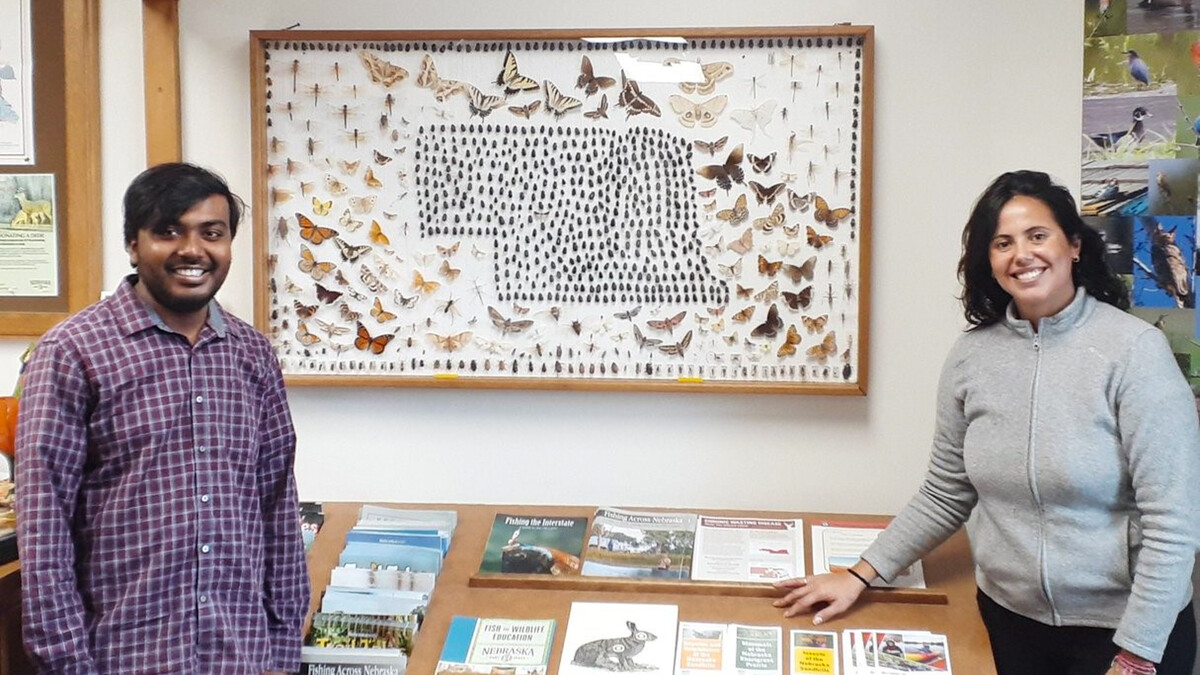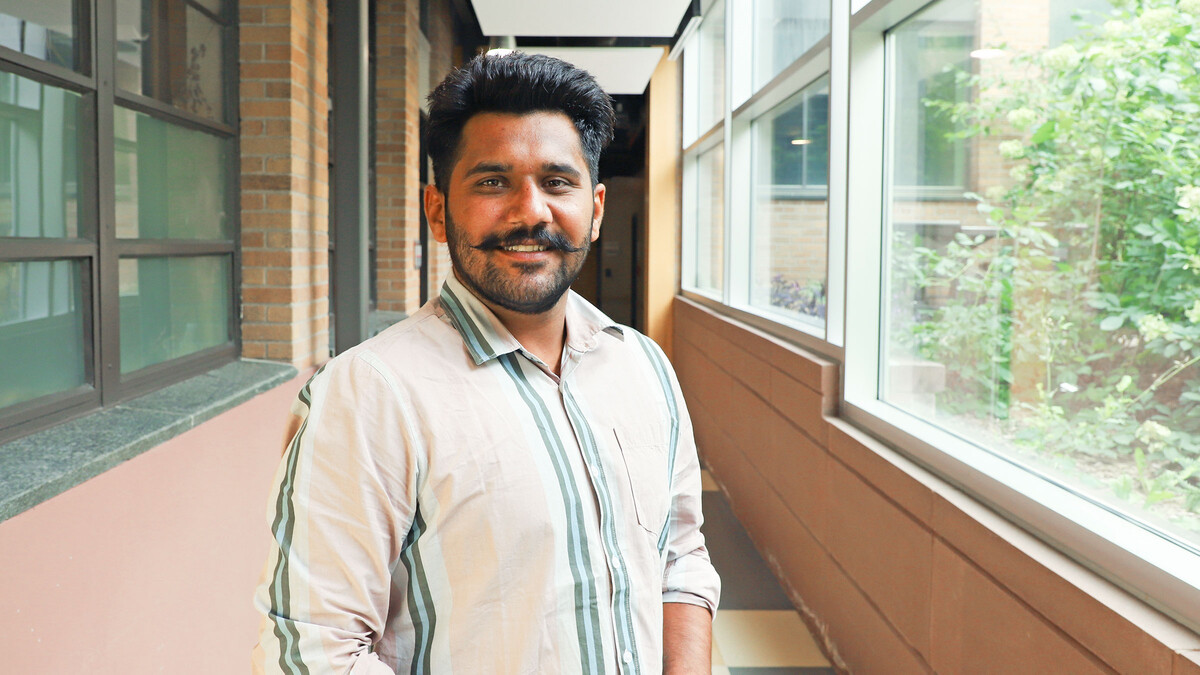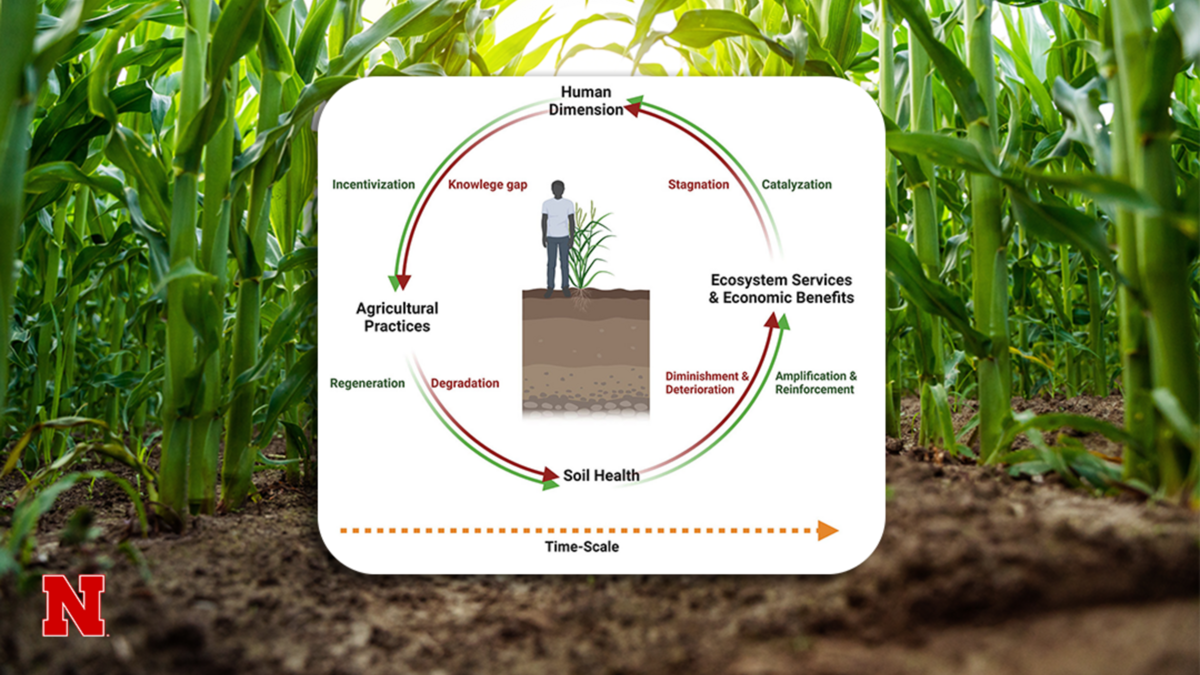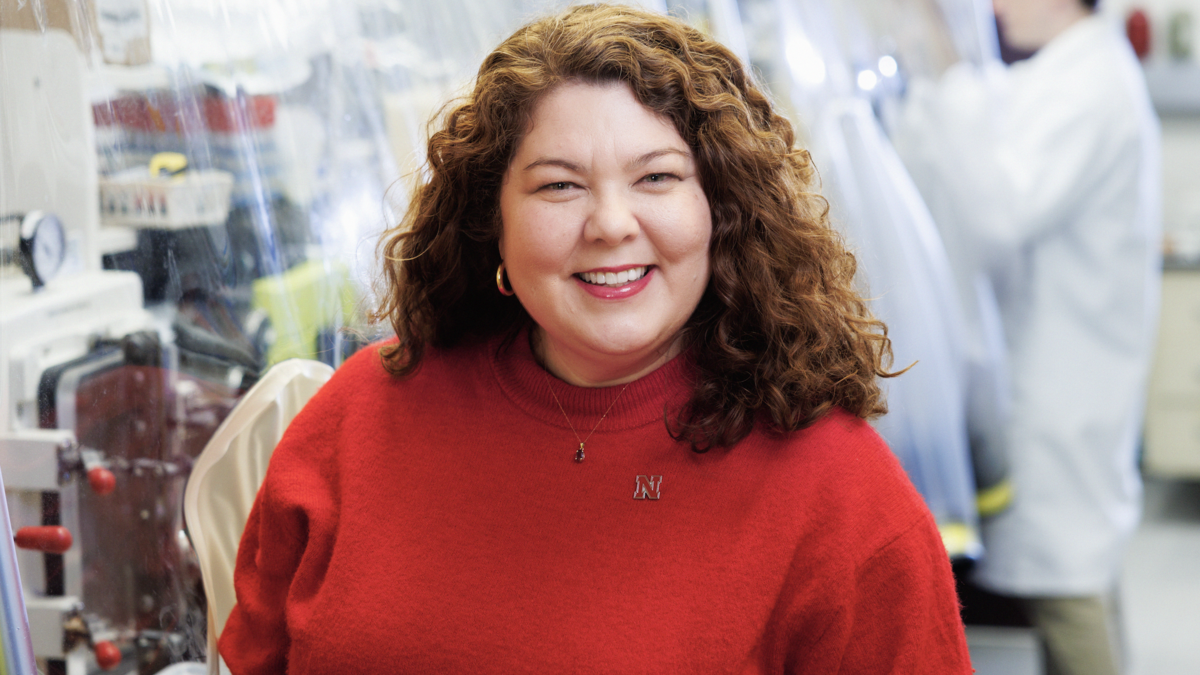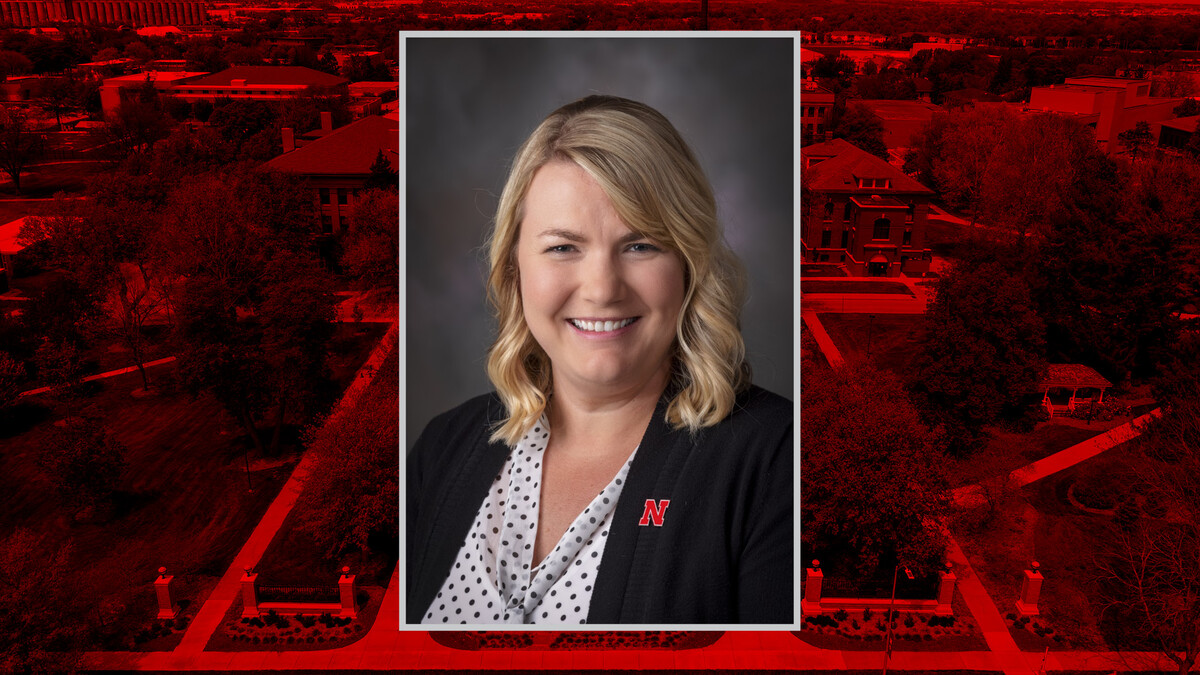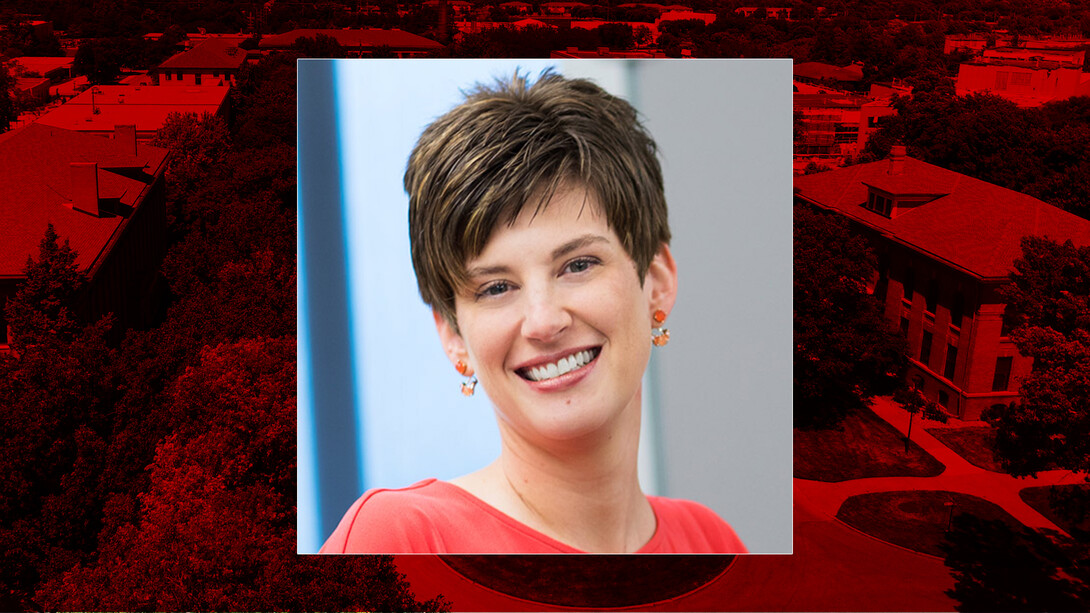
Lincoln, Neb. —Amanda Raimer-Tait, an associate professor of immunology and microbiology in the Department of Food Science and Technology, has been named Maxcy Professor of Agriculture and Natural Resources. The endowed professorship recognizes Ramer-Tait's international reputation as an expert in the interactions of diet, the microbiota, and gut health and underscores IANR's research focus on food science and health.
A growing body of research is revealing important connections between diet, the gut microbiota (the large community of microbes that reside in the human gastrointestinal tract) and an individual’s immunological and metabolic health. Such findings are valuable, for example, in developing dietary approaches to prevent and treat a variety of human diseases including inflammatory bowel diseases, metabolic syndrome and cancer.
Ramer-Tait has led various IANR research projects in this field, receiving major funding awards and explaining the findings through publication and presentations in the United States and internationally. The research has shown, for example, that certain types of dietary fibers known as prebiotics can improve glucose metabolism, insulin responsiveness and even anti-tumor immune responses. Some dietary fibers require the gut microbiota to provide beneficial health effects while others do not, the research showed.
Such findings, Ramer-Tait says, “suggest that fiber-based dietary interventions can be personalized to provide the best effects possible for disease prevention and treatment. More importantly, our work has created a strong foundation for the eventual development of personalized diets that are clinically proven to promote health benefits through modulation of the gut microbiome.”
Ramer-Tait grew up on a farm in rural Kentucky and received her B.S. in Biochemistry from Western Kentucky University and her Ph.D. in immunobiology from Iowa State University. She is a founding member of the Nebraska Food for Health Center (NFHC) and director of the Nebraska Gnotobiotic Mouse Program, whose research is foundational in the study of gut microbes and health.
In 2018, she partnered with the NFHC and the University of Nebraska Foundation to secure a $5 million gift to expand the Gnotobiotic Mouse Program and place Nebraska within the top 20 in the world for research capabilities in that field.
Ramer-Tait teaches graduate-level courses about immunology, microbiology and functional foods and co-directs the University of Nebraska-Lincoln’s Complex Biosystems graduate program. She has authored more than 80 peer-reviewed publications and received research funding from the Crohn’s and Colitis Foundation, the National Institutes of Health, and the U.S. Department of Agriculture.
She collaborated with Judy Diamond at the University of Nebraska State Museum to develop “Microbe Maniacs,” a hands-on, educational activity for elementary school children to promote awareness of gut microbiota and presented “Microbe Maniacs” at the USA Science and Engineering Festival in Washington, D.C. She has also worked closely with the Lincoln chapter of the Crohn’s and Colitis Foundation.
“Since establishing my independent research career at the UNL almost 10 years ago,” she says, “I have striven to lead a cutting-edge research and training environment where the scientific questions we seek to answer have clear applications and benefits to society but also interrogate the fundamental mechanisms driving the interactions between diet and gut health.”
With her selection as the endowed Maxcy Professor of Agriculture and Natural Resources, Ramer-Tait says she is “very grateful on behalf of our entire team and extremely appreciative of the Maxcy family for making this award possible. I look forward to continuing our research efforts aimed at keeping people healthy and creating a stronger agriculture sector by understanding how the foods we eat can influence our gut microbiome and our health.”
